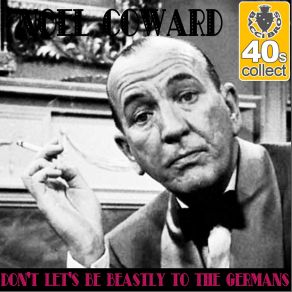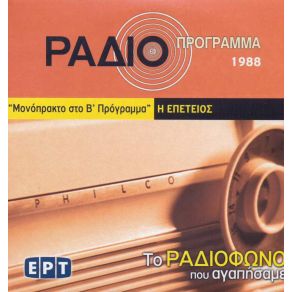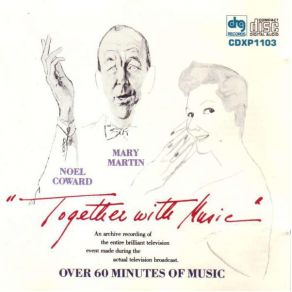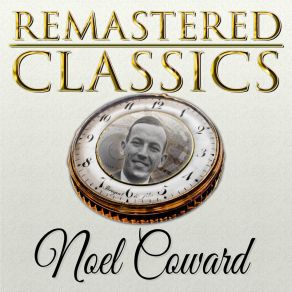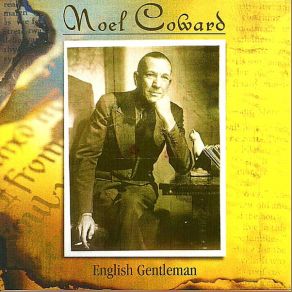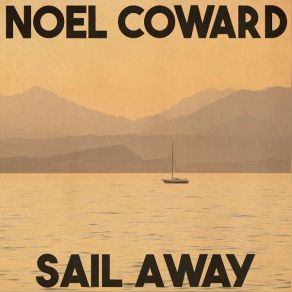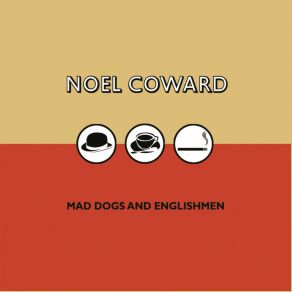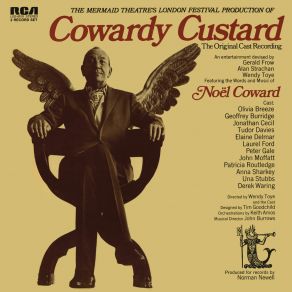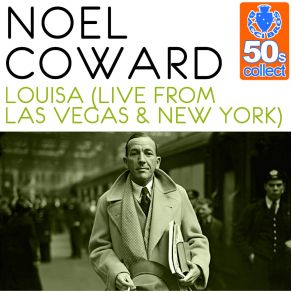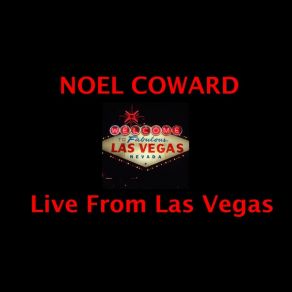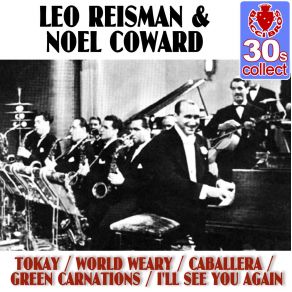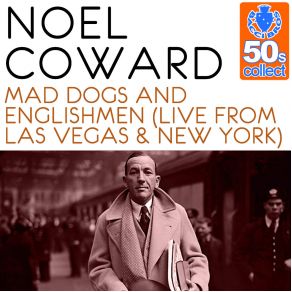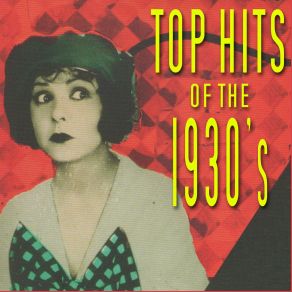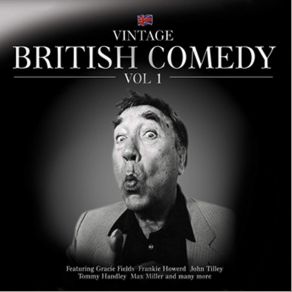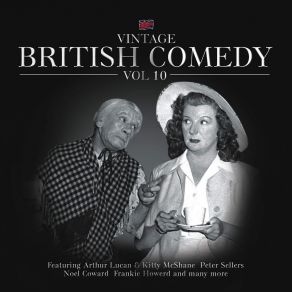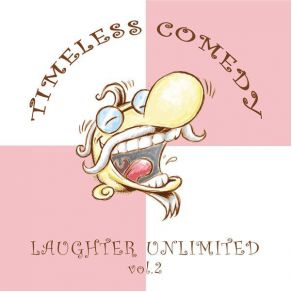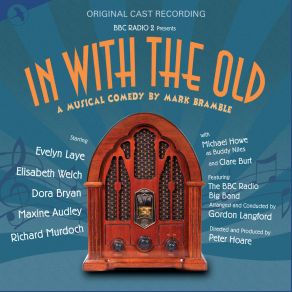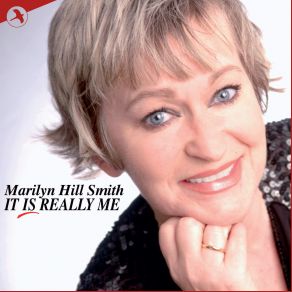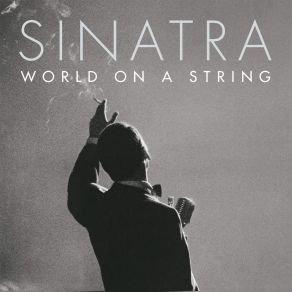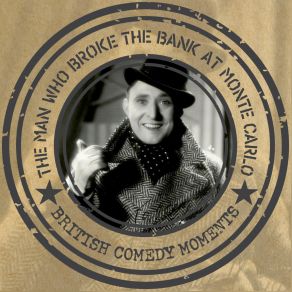Noël Coward / Noel Coward
Wikimp3 information about the music of Noël Coward / Noel Coward. On our website we have 70 albums and 70 collections of artist Noël Coward / Noel Coward. You can find useful information and download songs of this artist.
Biography
[Edit]A multi-talented Renaissance man of the 20th century, Noël Coward worked primarily as a playwright, actor, songwriter, and singer, but his creative activities also included the writing of fiction and poetry; producing and directing for the stage, film, and television; and nightclub entertaining and recording. Across a career spanning six decades, he was remarkably successful at these various pursuits, moving from one to the other with seeming ease, even when he was wearing several different hats at the same time, e.g., writing, directing, and starring in the same show. As a writer and as a performer, he maintained a consistent persona, that of a witty, sophisticated British subject, always ready to deliver a devastating and hilarious observation, often at the expense of his own kind, as he did, for instance, in his most famous song, "Mad Dogs and Englishmen." He was also, however, intensely patriotic, as he demonstrated in his World War II-era song "London Pride" and the film In Which We Serve (which, characteristically, he wrote, co-directed, starred in, and composed the background score for). And his sophistication could be used in the service of plaintive sentiment, as it was in such ballads as "If Love Were All." Especially later in his career, Coward put his persona on display in nightclubs and film appearances, but his reputation rests more on his writing; he was one of the major British playwrights of the century and, arguably, also the greatest creator of musical theater works among his countrymen in the same period, with 13 stage musicals to his credit between 1923 and 1963.
Although Coward maintained the image of an upper-class sophisticate, his origins were relatively humble. He was born Noël Peirce Coward in Teddington, Middlesex, England, on December 16, 1899, the son of Arthur Sabin Coward, a salesman for a music publisher, and Violet Agnes (Veitch) Coward. In his childhood, he began displaying the talents he would show the world later on, learning to play the piano by ear (he never learned to read music), writing plays and staging them in a toy theater, and preparing for the life of a performer by taking dancing lessons at age ten. He made his professional debut as an actor at 11, appearing in the children's musical The Goldfish at the Little Theatre in London on January 27, 1911. It was the beginning of a lengthy career acting as a juvenile over the next several years, during which his formal education lapsed. (Again, even though Coward's image might have suggested private schooling and a degree from Oxford or Cambridge, in fact he had barely a grade-school education.) Starting with his appearance in the play The Great Name in September 1911, he came under the tutelage of the great actor/manager Charles Hawtrey, a model for the all-encompassing approach he would take to his stage projects as an adult. He debuted as a director by handling a single performance of a one-act play, The Daisy Chain, on February 2, 1912. His first play as an author to be produced was the one-act effort Ida Collaborates (written with Esmé Wynne), performed at the Theatre Royal, Aldershot, on August 20, 1917. He and Wynne also co-wrote Women and Whisky, another one-act, performed at the Wimbledon Theatre in November 1917.
Coward made his film debut as an extra in D.W. Griffith's Hearts of the World, which was released in April 1918. His theatrical debut as a lyricist came with the song "Peter Pan" (aka "The Story of Peter Pan"), for which Doris Joel composed the music and co-wrote the lyrics. It was sung by Phyllis Titmuss in the musical revue Tails Up, which opened in London on June 1, 1918. The song was published, and a recording was made by Louise Leigh. I'll Leave It to You, which opened in London's West End (the British equivalent of Broadway) on July 21, 1920, for a run of 37 performances, was the first play written solely by Coward to be produced; the 20-year-old author also appeared in it. Notwithstanding this career milestone, he continued to be employed primarily as an actor for the next two years, even as he wrote more plays. His next play to be produced was a one-act comedy, The Better Half, which opened May 31, 1922, and ran 29 performances; it was followed by the full-length comedy The Young Idea, which began in London on February 1, 1923, for a run of 60 performances with the playwright in the cast.
Coward had also continued to write songs, notably contributing to the musical revue The Co-Optimists (May 1922), and London Calling! (September 4, 1923) was the first musical revue for which he was credited as the primary songwriter (he wrote half of the 26 numbers); he also co-wrote the book of the show and appeared in it. Actress/singer Gertrude Lawrence, who was in the show, recorded his "Parisian Pierrot" and "Russian Blues" from the score. Coward later recorded both those songs and "Other Girls." The revue ran 316 performances, establishing him as a writer for the musical theater. Several of the songs were performed in New York in André Charlot's London Revue of 1924 (January 9, 1924), giving Coward his Broadway debut as a songwriter. "It's the Peach," written in 1916 and featured in the musical revue Yoicks! (June 11, 1924), actually had been the first song for which he wrote both words and music. It was later known as "Forbidden Fruit." Daniel Massey, playing Coward, sang it in the 1968 film Star!, the screen biography of Lawrence, and on the soundtrack album. Coward wrote yet more songs for Charlot's Revue (September 23, 1924), the London edition of the show that had run in New York.
The play that established Coward as a playwright and a director was The Vortex (December 16, 1924), a provocative drama treating issues of sex and drugs in which he also starred. It caused a sensation in London and ran 224 performances. The twin successes of London Calling! and The Vortex essentially opened the floodgates to the writing Coward had been doing in recent years, and 1925 saw productions of three of his straight plays — Fallen Angels (April 21, 1925), Hay Fever (September 7, 1925), and Easy Virtue (on Broadway, December 7, 1925). (A new film version of Easy Virtue appeared in 2009.) Coward did not act in any of these, although he directed Hay Fever. Nor did he perform in his musical revue for the year, On with the Dance, which opened in London on April 20, 1925, for a run of 229 performances, although he did write the book as well as the songs. The hit of the show was "Poor Little Rich Girl." After it was interpolated into the Broadway production Charlot's Revue of 1926 (November 10, 1925), it was recorded by Gertrude Lawrence, who sang it on-stage in New York, and it became a hit in the U.S. in the spring of 1926. It was later recorded by Tony Bennett, Chris Connor, Judy Garland, Mary Cleere Haran, Marian McPartland, and Gerry Mulligan, among others. It was also recorded by Coward himself at one of two recording sessions he did for HMV Records in August 1925, although the results of the sessions were rejected by the label; the singer/songwriter would not commence his formal association with HMV (which lasted more than 20 years) until 1928. He had not given up acting, either. He made his Broadway debut as a performer in the New York production of The Vortex on September 16, 1925, and returned to the London stage in a play he did not write, The Constant Nymph, a year later, on September 14, 1926. The year 1926 also saw productions of two of his early plays in London — The Queen Was in the Parlour (August 8, 1926) and The Rat Trap (October 18, 1926) — as well as a new play, This Was a Man (November 23, 1926) on Broadway.
Even if some of this material had come out of his trunk, Coward was producing a prodigious amount of writing in the mid-'20s, and it was not surprising that he dropped out of The Constant Nymph after three weeks, said to be suffering from "severe nervous exhaustion," and set off on a globe-trotting vacation that took him as far as Hawaii. This set a pattern for the rest of his career, as he determined never to appear in one of his plays for more than three months in London and three months in New York at a time, and to take lengthy holidays in foreign climes (often writing more plays and songs along the way). He returned to London in 1927 with the plays The Marquise (February 16, 1927) and Home Chat (October 25, 1927), plus another early, previously unproduced play, Sirocco (November 24, 1927). Of these, only The Marquise was successful, which falsely suggested to critics, not for the last time, that he was washed up after only three years in the limelight. Instead, he returned to the stage as an actor in S.N. Behrman's The Second Man (January 24, 1928), which had a healthy run of over 100 performances, and mounted his third musical revue, This Year of Grace! (March 22, 1928), again writing both the book and the music. The score contained "A Room with a View," a U.S. hit for Ben Selvin that eventually was recorded by Hildegarde, Julie London, Russ Morgan, and Artie Shaw, among others, and "Dance, Little Lady," a U.S. hit for Roger Wolfe Kahn, which attracted covers by Ambrose and Hildegarde, among others. Coward himself also recorded them on April 25, 1928, at his first session to produce releasable records for HMV. Over the course of three trips to the recording studio that spring, he also cut "Mary Make-Believe," "Try to Learn to Love," and "Lorelei," all from This Year of Grace!, establishing a pattern of doing his own versions of songs from his shows that would continue even after the trend for "original cast" albums set in 15 years later. This Year of Grace! matched the run of London Calling! at 316 performances in London, and it did another 158 on Broadway (starting on November 7, 1928), where Coward appeared in it and added new songs including "World Weary," which he went on to record.
Each of Coward's three musicals had been revues, full of comic sketches and independent songs, but without a story; for his next musical venture, he increased his ambitions again, writing a "book" musical that he set, for once, partially in the 19th century and billed as an "operette." Of course, he also wrote the music, and he added the job of director to his duties. Having enough to do, he did not also appear in Bitter Sweet, which opened in London on July 12, 1929. It was positively received, its most memorable songs being "I'll See You Again" (a U.S. hit for Leo Reisman and eventually recorded by Rosemary Clooney, Bill Evans, Eddie Fisher, Dorothy Kirsten, Mario Lanza, Guy Lombardo, Sonny Rollins, Frank Sinatra, Lawrence Welk, Art Tatum, and Phil Woods, among others); "If Love Were All" (covered by Julie Andrews, Shirley Bassey, Sarah Brightman, Barbara Cook, Judy Garland, Mabel Mercer, Helen Merrill, Pet Shop Boys, and others); and "Zigeuner" (covered by Hildegarde, Tony Martin, Artie Shaw, Art Tatum, and others). The show ran 697 performances, making it the most successful musical of Coward's career. A Broadway production that opened on November 5, 1929, added another 159 performances. Coward celebrated by taking an extended trip through Asia in 1929-1930, during which he kept a promise to Gertrude Lawrence to write a stage vehicle for the two of them, coming up with the play Private Lives. It opened in London for a run of 101 performances on September 24, 1930, and, although it was not a musical, nine days earlier Coward and Lawrence had gone into the HMV studio to record scenes from it that featured both dialogue and music, including the song "Someday I'll Find You," which went on to become another Coward standard, recorded by Doris Day, Jackie Gleason, Hildegarde, Marian McPartland, Leo Reisman, Sonny Rollins, and Mel Tormé, among others. Coward and Lawrence moved to New York, where they opened on January 27, 1931, and the play ran for 256 performances there. Over the years, it became one of Coward's most successful works, continually revived.
While Coward worked on his next major stage work, he placed a few songs in musical revues in London and New York. Charles B. Cochran's 1931 Revue (London, March 19, 1931) used "Any Little Fish" and "Half-Caste Woman," both of which Coward had recorded on January 2, 1931, as well as other songs. The Third Little Show (New York, June 1, 1931) found Beatrice Lillie introducing a tune Coward had written in the Far East, "Mad Dogs and Englishmen," a witty patter song questioning why the English, while running their many colonies in the Tropics, never took an afternoon nap as the natives did. It became Coward's signature song and was recorded not only by him (in 1931), but also by Danny Kaye and Rudy Vallée, among others. The Ziegfeld Follies of 1931 (New York, July 1, 1931), meanwhile, featured Helen Morgan singing "Half-Caste Woman."
As writer/director, Coward had another ambitious idea for the stage, Cavalcade, a lengthy and lavishly mounted panorama of 30 years of British history (starting on New Year's Eve, 1899, two weeks after his own birth). Opening in London on October 13, 1931, for a run of 405 performances, it contained music, but most of it was period music not written by Coward. He did, however, record both orchestral and vocal medleys of that music released on two special 12" discs by HMV. And he did write a few songs, notably "Twentieth Century Blues," later recorded by Karen Akers, Marianne Faithfull, and Ray Noble (with Al Bowlly on vocals), among others. With the show successfully launched, he went off on another of his lengthy trips, this one taking in South America, and when he returned to London in the spring of 1932, it was with another musical revue and another play in mind. The musical revue had the generic name Words and Music, and it opened on September 16, 1932, written and directed by (but not featuring) Coward, for a run of 134 performances, which was successful given the depths of the Depression. It marked the London premiere of "Mad Dogs and Englishmen," as well as another of Coward's most valuable copyrights, "Mad About the Boy," eventually recorded by Georgia Brown, Buddy DeFranco, Helen Forrest, Jackie Gleason, Gogi Grant, Lena Horne, Julie London, Marian McPartland, Anita O'Day, Patti Page, Elaine Paige, Tom Robinson, Cybill Shepherd, Dinah Shore, Jeri Southern, Maxine Sullivan, Dinah Washington, and Phil Woods. (Ray Noble had a U.S. hit with it in 1935.) "The Younger Generation" attracted covers by Noble and Django Reinhardt. Coward himself recorded "Mad Dogs and Englishmen" as well as "Let's Say Goodbye," "The Party's Over Now," and "Something to Do with Spring" from the score.
The play Coward had been working on was, again, a promised project, this time to give his friends, the married acting team of Alfred Lunt and Lynn Fontanne, something to do with him. This was Design for Living, a provocative examination of a ménage à trois that opened on Broadway on January 24, 1933; was written and directed by and co-starred Coward; and ran for 135 performances. On April 11, he belatedly held a recording session for songs from Bitter Sweet, accompanied by Leo Reisman & His Orchestra, also throwing in "Poor Little Rich Girl." The results appeared on a special 12" single called Noël Coward Sings, issued by RCA Victor in the U.S. Another vacation, in the West Indies and Central America, followed by a London revival of Hay Fever that Coward directed in the fall of 1933, led to his next new show, Conversation Piece, "a romantic comedy with music" (actually an operetta), which he wrote, directed, and starred in, and which opened in the West End on February 16, 1934, for a run of 177 performances. Among the musical numbers was "I'll Follow My Secret Heart," later recorded by Coleman Hawkins, Sonny Rollins, Frank Sinatra, Elisabeth Welch, and Lee Wiley, among others. Coward also recorded it, along with his co-star, Yvonne Printemps, and Ray Noble had a U.S. hit with it after the American version of the show opened on October 10, 1934, for a run of 55 performances. (Coward directed, but did not appear in, this staging.)
Having formed his own production company, Coward devoted much of 1934 to directing the work of others for the firm, starting with S.N. Behrman's Biography, which opened in London on April 25, 1934, and continuing with George S. Kaufman and Edna Ferber's Theatre Royal, which opened on October 23, 1934. Six days later, he held an unusual recording session of songs of his own that were not associated with any show and songs by others, including "I Travel Alone," one of his most personal statements, "Most of Ev'ry Day," Leo Robin and Ralph Rainger's "Love in Bloom," and Sam Coslow's "Fare Thee Well." Meanwhile, he was preparing another play for the Lunts (but not himself, except as writer/director), Point Valaine, which opened on Broadway for an unsuccessful run of 55 performances on January 16, 1935. After the opening, he returned for the first time since 1917 to film acting, taking the starring role in the movie The Scoundrel. (Although he had not been involved personally, his shows had been used as the source material for a number of films, including The Queen Was in the Parlour [1927], The Vortex [1928], Easy Virtue [1928] [all silent movies], Private Lives [1931], Tonight Is Ours [based on The Queen Was in the Parlour] [1932], Cavalcade [1932], Bitter Sweet [1933], and Design for Living [1933].) The Scoundrel was well reviewed when it opened in May 1935, but Coward opted against devoting much of his time to the screen. On August 15, 1935, he recorded another of his independent compositions, not related to any show, and it was one of his funniest novelty songs, "Mrs. Worthington" (aka "Don't Put Your Daughter on the Stage, Mrs. Worthington"), a knowing condemnation of a stage mother.
Coward's next stage project as writer/director/star was another ambitious effort, Tonight at 8:30, also featuring Gertrude Lawrence, which consisted of nine one-act plays performed in repertory over the course of three nights. It opened in London on January 9, 1936, for a run of 157 performances. Several of the plays contained music, and he and Lawrence recorded musical excerpts for HMV. They took the plays to New York for an opening on November 24, 1936, and a run of 118 performances. Then Coward began work on another full-scale book musical as writer/director (but not star this time). Having described Bitter Sweet as an "operette," he decided to actually title this one Operette. A backstage musical, it opened in London on March 16, 1938, and ran 133 performances. Coward himself recorded several of the songs from it, among them "The Stately Homes of England," "Dearest Love," and "Where Are the Songs We Sung?" He next went back to Broadway, where he wrote and directed Set to Music (January 18, 1939; 129 performances), which was actually a revised version of Words and Music, but is notable for the introduction by Beatrice Lillie of "Marvellous Party" (aka "I Went to a Marvellous Party"), a typically witty song that would become a cornerstone of Coward's nightclub act.
Although Coward couldn't have realized it at the time, Set to Music marked the end of the initial phase of his career and his last legitimate stage work for some time. During the summer of 1939, he prepared two new plays, Present Laughter and This Happy Breed, intending to bring them into London together in the fall. But the beginning of World War II on September 3, 1939, led the British government to close down the theaters temporarily, and instead of doing theater work, Coward did war work, initially going to Paris to set up an office of government propaganda. He stayed there until April 1940, when he left to travel around the U.S., gauging American sentiment about the war. In the fall, he went to Australia, and he spent the next few months performing for troops and for fundraisers there and in New Zealand, returning to London in April 1941. He then went back to creative work, but with more of a war orientation. He wrote the patriotic song "London Pride," which he recorded for HMV in July; it was later recorded by Julie Andrews and Mel Tormé, among others. (The war also inspired him to write some more comic and satiric numbers, including "Could You Please Oblige Us with a Bren Gun?" and "Don't Let's Be Beastly to the Germans.") Blithe Spirit, a comic play about ghosts, billed as "an improbable farce," which he wrote and directed, opened in London on July 2, 1941, and ran throughout the war, giving audience members respite from their concerns for 1,997 performances, the longest run of any show Coward ever wrote.
In the summer of 1941, Coward was asked to come up with an idea for a morale-building film, finding inspiration in the heroic efforts of the crew of the HMS Kelly, sunk off Crete, and its captain, his friend Lord Louis Mountbatten. The result was In Which We Serve, for which Coward provided the screenplay and the background score, which he co-directed with David Lean, and in which he starred as the ship's captain. The film was shot during the first half of 1942 and opened on September 17, 1942, earning Coward a special Academy Award for "outstanding production achievement." On September 20, 1942, he began touring around Britain in a revolving repertoire of Present Laughter, This Happy Breed, and Blithe Spirit, which he did for the next six months, finally bringing Present Laughter and This Happy Breed into London in April 1943. In July, he embarked upon a tour of the Middle East, entertaining troops and visiting hospitals, returning to London in October. At the start of 1944, he began another arduous tour through Africa and then on to India and Burma. Later in the year, after D-Day, he performed for troops in Europe and at the Stage Door Canteen in London.
In addition to In Which We Serve, Coward was represented in cinemas by an American remake of Bitter Sweet (1941) starring Jeanette MacDonald and Nelson Eddy; We Were Dancing (1942), based on one of the plays in Tonight at 8:30; This Happy Breed (1944), which Coward himself produced and adapted; Blithe Spirit (1945), which he adapted; and Brief Encounter (1945), based on another of the plays from Tonight at 8:30, which he produced and adapted. This was the kind of work he could do while devoting most of his time to traveling in war zones, but with the end of the war in 1945, he was able to return to working on a full-scale stage musical, and he wrote and directed a new revue, Sigh No More, which opened in London on August 22, 1945, for a run of 213 performances. The most popular songs to emerge from the show were the humorous tango "Nina" and the touching ballad "Matelot." He recorded them, along with "I Wonder What Happened to Him," "Never Again," "Wait a Bit, Joe," and the title song, on September 14, 1945.
Although the recording of original cast albums had become commonplace for successful Broadway shows by the mid-'40s, postwar privation prevented this in Great Britain so that, for example, the stars of Sigh No More, Joyce Grenfell and Graham Payn, only recorded singles of songs from the score. (Grenfell did "The End of the News" and Payn "Matelot" and "Sigh No More," for Decca Records.) Coward's next show, however, was a sufficiently big deal to get its own original cast album, the first for one of his musicals. This was Pacific 1860, which also served to reopen the massive Theatre Royal, Drury Lane (damaged by bombing during the war) and which featured the Broadway star Mary Martin. The music for the show, which opened on December 19, 1946, was preserved on six 78-rpm discs by Decca; Coward himself cut four of the songs, including the humorous "Uncle Harry" and the ballad "Bright Was the Day," for HMV, although he had restricted himself to writing and directing the production and did not appear in it. But despite all this recording activity, Pacific 1860 was actually a commercial failure, running only 129 performances.
After World War II, Coward began to find more success in repeating himself than he did in creating new work. For example, a London revival of Present Laughter (April 16, 1947), in which he starred for the first three months, was a hit, running 528 performances, while a new play, the drama Peace in Our Time (a fantasy about what would have happened if Germany had invaded England during World War II), which opened July 22, 1947, ran only 167 performances. In 1948, there were revivals of Tonight at 8:30 and Private Lives in the U.S., while Coward went to France to appear in a production of Present Laughter performed in French. During the year, he bought land in Jamaica, where he built an estate. He also wrote the screenplay for The Astonished Heart, based on another of the short plays in Tonight at 8:30; when the film was shot in 1949, he starred in it, and he wrote the musical score. It opened in February 1950.
In 1950, Coward wrote and directed his tenth musical, Ace of Clubs, a comic mystery set in a nightclub. A modest success running 211 performances, it opened in London on July 7, 1950. Coward recorded a few of its songs, notably "Sail Away," "Why Does Love Get in the Way," and "I Like America," and the cast recorded so-called "vocal gems" from the score, i.e., medleys of the songs released on two 12" 78s on HMV's Plum label. "Chase Me, Charlie" was covered by Mel Tormé, but the hit to emerge from the show was the lilting "Sail Away," which Coward reused as the title song for his 12th musical a decade later; it was recorded by Laurie Beechman, Judy Garland, and Pet Shop Boys, among others.
After Ace of Clubs, Coward began to pursue musical activities outside of the legitimate theater. Signing to the American Columbia Records label and simultaneously to Philips Records for Europe, he recorded a recitation of Ogden Nash's verse to Saint-Saëns' Carnaval des Animaux (Carnival of the Animals), as performed by an orchestra conducted by André Kostelanetz, for a 10" LP in September 1950. Coward teamed up with Kostelanetz's wife, the opera singer Lily Pons, in January 1951 for a double-LP studio cast recording of Conversation Piece, released by Columbia. And on October 29, 1951, he took a new step in his career by beginning a monthlong engagement in a nightclub, the Café de Paris in London, performing a set of his best-known songs. He returned for another month in June 1952.
Coward's new career as a cabaret entertainer seemed to rejuvenate other areas of his activities. His next play, Relative Values, a "light comedy" he wrote and directed that opened in London on November 28, 1951, was a hit, running 477 performances. Quadrille, another comedy starring the Lunts that he wrote and directed, ran 329 performances after opening in London on September 12, 1952. (In between, he contributed a couple of songs to The Globe Revue, one of which was the comic "There Are Bad Times Just Around the Corner," which he used in his act and recorded. It was his last recording for HMV. In 1992, EMI, HMV's parent company, assembled the four-CD box set The Masters' Voice — Noel Coward: His HMV Recordings 1928 to 1953, released on the Angel subsidiary.) The year 1952 also saw the filming of Meet Me Tonight, a film drawn from three more of the Tonight at 8:30 plays, for which Coward wrote the screenplay; it opened in May 1953.
Coward spent the Coronation Year of 1953 (marking the ascension of Queen Elizabeth II to the British throne) starring in George Bernard Shaw's play The Apple Cart, which opened in May and ran through August 1, while simultaneously appearing in a late-night set at the Café de Paris. He next wrote the book and music for a new musical, After the Ball, but did not direct it or appear in it. Also, unusual for Coward, the show was not based on an original idea of his, but was a musical adaptation of Oscar Wilde's play Lady Windermere's Fan. Opening on June 10, 1954, it ran a modest 188 performances. An original cast album was recorded by Philips that was curiously incomplete because, due to contractual restrictions, Shamus Locke, who played Lord Darlington, could not perform on the disc, and the songs on which he was featured were simply cut. Coward himself did not record any of the songs, but he did record his first solo LP as a singer in July 1954, making the 10" disc I'll See You Again for Philips. (It was released in the U.K. in 1955.) Intended as a companion to his nightclub work, the album consisted of new versions of some of his better-known songs. Appropriately, he was back at the Café de Paris for a month starting on October 24, 1954.
For a number of years, Coward had largely restricted his activities to England, but in 1955 he shifted his focus to the U.S., surprisingly accepting an offer to appear at the Desert Inn in Las Vegas in an engagement beginning on June 7, 1955, and running through July 5. On June 27 and 28, Columbia recorded the shows, resulting in the live LP Noel Coward at Las Vegas, which was released at the end of the year and spent one week at number 14 in the Billboard album chart in January 1956. On August 30, 1955, he filmed a cameo appearance in the star-studded film Around the World in 80 Days, which was released in 1956. It was the first of a series of brief but lucrative appearances he would make in small character parts in major motion pictures over the next several years: Our Man in Havana (1960), Surprise Package (1960), Paris When it Sizzles (1964), Bunny Lake Is Missing (1965), Boom (1968), and The Italian Job (1969). Back in 1955, his next project was a series of U.S. television specials, beginning with Together with Music, a 90-minute program in which he was paired with Mary Martin, performed live on October 22, 1955. (A promotional album was made of the show. It was released commercially as a two-LP set by DRG Records in 1978 and later reissued in abridged form as a single CD.) The other two specials were versions of Coward plays that he directed and starred in, Blithe Spirit on January 14, 1956, and This Happy Breed on May 5, 1956.
During 1956, Coward abandoned Great Britain for tax reasons, becoming a permanent resident of Bermuda. He bought a chalet in Les Avants, Switzerland, in 1959, and that became his primary residence as of 1964, although he continued to live much of the time in Jamaica. Meanwhile, he returned to playwriting with two of his works, both billed as light comedies, playing in London: South Sea Bubble (April 25, 1956) and Nude with Violin (November 7, 1956). The latter also had a production on Broadway that Coward directed and starred in, his final appearance as an actor in New York. It opened November 14, 1957, and ran 80 performances, followed by a West Coast tour in 1958, during which it alternated with Present Laughter. Prior to that, however, Coward also had been "in New York," as the title for a follow-up for Noel Coward at Las Vegas put it, recording the studio LP Noel Coward in New York in the fall of 1956 for release on Columbia in 1957. The same season, he and actress Margaret Leighton made spoken word recordings for Caedmon Records of scenes from his plays, plus the second act of The Apple Cart, in which they had appeared together in London in 1953. The first result was the LP Noël Coward & Margaret Leighton in Noël Coward Duologues, and after a second recording session of Coward's poetry in January 1958 came The Apple Cart & Poems by Noël Coward. (In 2005, these recordings, along with other recordings of Coward's writings performed by Simon Jones, were gathered together by Caedmon into the five-CD set The Noel Coward Audio Collection.)
In 1959, Coward adapted Georges Feydeau's French farce Occupe-toi d'Amélie into Look After Lulu, which he co-directed with Cyril Ritchard when it opened in New York on March 3 for a run of 39 performances. Tony Richardson directed the British production that opened on July 29, 1959, and ran 155 performances. Coward, meanwhile, was busy composing the score for a ballet, London Morning, which was premiered by the London Festival Ballet Company in the city for which it was named on July 14, 1959. Shortly after, it was recorded by Decca Records, as performed by the London Philharmonic Orchestra conducted by Geoffrey Corbett. Typically, Coward was active on several fronts in 1960. His next play, Waiting in the Wings, opened in London on September 7, 1960, for a run of 191 performances; his first full-scale novel (after several collections of short stories), Pomp and Circumstance, was published in November and became a best-seller; and he composed the theme for the film The Grass Is Greener (with some of his other music used in the background score), released in December.
In 1961, Coward came up with his 12th stage musical, and the last one for which he wrote the book and the songs as well as directing, the ship-board comedy Sail Away, starring Elaine Stritch. It opened on Broadway on October 3, 1961, and ran 167 performances, closing as a commercial failure. There was an original cast album released by Capitol Records that spent 22 weeks in the charts, and Capitol also released Coward's own LP of his performances of the show's songs in early 1962. The show opened in the West End on June 21, 1962, where it ran for seven months, and there was another cast album, released in the U.K. on HMV in 1962 and in the U.S. on Stanyan Records in 1972. Coward supervised a production in Australia that opened on July 19, 1963. He next accepted an assignment to write only the songs for what turned out to be his final new musical, The Girl Who Came to Supper, an adaptation of Terence Rattigan's play The Sleeping Prince. It opened on Broadway on December 8, 1963, and ran 112 performances, with a cast album on Columbia that reached the Top 40. Coward's private demonstration recording of the show's songs was released commercially by DRG in 1977. He had greater success in the same 1963-1964 Broadway season with a musical he did not write, but that he directed and that was adapted from one of his plays. High Spirits, based on Blithe Spirit, with a book and songs by Hugh Martin and Timothy Gray, opened on Broadway on April 7, 1964, and ran for 375 performances. Coward also directed a revival of his play Hay Fever that opened at the National Theatre in London on October 27, 1964, to critical approbation, and he supervised the London production of High Spirits, which opened on November 3, 1964. He made a recording of some of the songs for an EP released by Pye Records in the U.K., and the tracks were later added to a CD reissue of the London cast recording of the show released by DRG.
By the mid-'60s, Coward, the same age as the century, was slowing down creatively. The 1965 short-story collection Pretty Polly Barlow and Other Stories led to the adaptation of the title story into the 1968 film A Matter of Innocence. In May 1965, Coward recorded another spoken word album, a version of Richard Brinsley Sheridan's 1779 play The Critic co-starring Mel Ferrer, released as an LP by Decca in 1966. His next project was his last major theatrical effort, a trio of plays called Suite in Three Keys in which he starred in London starting on April 14, 1966; it marked his final regular stage appearance. On July 5, 1966, he recorded spoken lyrics from his songs for the album Joan Sutherland Sings Noël Coward, released by London Records. On November 15, 1967, he starred in the original television musical Androcles and the Lion, with a score by Richard Rodgers, in the U.S. The soundtrack album was released by RCA Victor Records. His final recording project also occurred in the fall of 1967, when he recited some poetry for one side of an LP with John Betjeman on the other, released under the title Back to Back. He was belatedly knighted in 1970, becoming Sir Noël Coward. He died of a heart attack at 73 in his home in Jamaica on March 26, 1973, and is buried there.
Even before his death, Coward was being celebrated by continual revivals, on stage and on television, of his most popular plays, particularly Private Lives, Design for Living, and Blithe Spirit. Like other songwriters for the musical theater of his generation, he tended to be remembered more for his individual songs from the interwar period, rather than for the shows from which they came. (But unlike such contemporaries as Irving Berlin and Cole Porter, he did not manage to come up with a late masterpiece like Annie Get Your Gun or Kiss Me, Kate that carried him into the postwar period. Shows like Pacific 1860, After the Ball, and Sail Away lapsed into obscurity. There was, however, a major revival of Bitter Sweet in London in 1988 that was recorded for a cast album.) Those individual songs started turning up in newly constructed musical revues as early as the appearance of Noël Coward's Sweet Potato, which ran on Broadway in the fall of 1968; it was followed by such similar efforts as Cowardly Custard in London and Oh Coward! in New York in 1972, both of which produced cast albums. (Mr. & Mrs., an unsuccessful London musical of 1968, was based on two of the one-act plays from Tonight at 8:30, but did not use Coward's music.) Noël and Gertie, first performed in London in April 1981, was Coward biographer Sheridan Morley's theatrical treatment of the relationship between Coward and Gertrude Lawrence, drawn from Coward's words and music; a cast album appeared in 1986. Noël/Cole — "Let's Do It!" was a 1994 British musical revue featuring the songs of Coward and Cole Porter, and it too produced a cast album.
As Coward's own recordings of his songs entered the public domain in Europe (where the copyright limit lasts only 50 years), CD reissues became confusingly repetitious in their content, but a number of them demonstrated the continuing appeal of his music, as did the many albums devoted to his music recorded by others, which include: Dominic Alldis' If Love Were All: The Songs of Noël Coward; The Noël Coward Songbook, by Ian Bostridge, Sophie Daneman, and Jeffrey Tate; Richard Conrad's Noël Coward Songs: A Room with a View; Craig Jessup Sings Noël Coward; Barbara Lea and Keith Ingham Are Mad About the Boy: The Songs of Noel Coward; Mad About the Man, by Carmen McRae; Bobby Short Is Mad About Noel Coward; The Dance Bands Play Noel Coward; The Great British Dance Bands Play the Music of Noel Coward; Noel Coward Revisited (featuring Laurence Harvey, Hermione Gingold, and Dorothy Loudon, among others); Twentieth-Century Blues: The Songs of Noël Coward (featuring Paul McCartney, Bryan Ferry, Elton John, and Sting, among others); and The Words and Music of Noël Coward.
Title: Don't Let's Be Beastly to the Germans (Remastered) - Single
Artist: Noël Coward / Noel Coward
Genre: Pop
Title: Noel Coward In His Own Words
Artist: Noël Coward / Noel Coward
Genre: Pop, Theatre/Soundtrack
Title: Noel Coward's Cavalcade (Original Musical Cast)
Artist: Noël Coward / Noel Coward
Genre: Theatre/Soundtrack
Title: The Stately Homes of England (Remastered) - Single
Artist: Noël Coward / Noel Coward
Genre: Pop
Title: Noël and Gertie / Noel and Gertie
Artist: Noël Coward / Noel Coward, Gertrude Lawrence
Genre: Pop
Title: Together With Music
Artist: Mary Martin, Noël Coward / Noel Coward
Genre: Pop, Theatre/Soundtrack
Title: I'll See You Again / Noel Coward in New York
Artist: Noël Coward / Noel Coward
Genre: Rock, Pop, Theatre/Soundtrack
Artist: Noël Coward / Noel Coward
Genre: Theatre/Soundtrack
Title: In The USA: Three Original S Plus Bonus Tracks (CD1)
Artist: Noël Coward / Noel Coward
Genre: Jazz, Pop, Theatre/Soundtrack
Title: Could You Please Oblige Us With a Bren Gun? - Single
Artist: Noël Coward / Noel Coward
Genre: Pop
Title: World Weary (Remastered) [Live from Las Vegas & New York] - Single
Artist: Noël Coward / Noel Coward
Genre: Pop
Title: Loch Lomond (Remastered) [Live from Las Vegas & New York] - Single
Artist: Noël Coward / Noel Coward
Genre: Pop
Title: Cowardy Custard (The Original Cast Recording)
Artist: Noël Coward / Noel Coward
Genre: Theatre/Soundtrack
Title: Nöel Coward - Vintage Cafè / Noel Coward - Vintage Cafè
Artist: Noël Coward / Noel Coward
Genre: Jazz
Title: Pacific 1860 (Original London Cast)
Artist: Mary Martin, Noël Coward / Noel Coward
Genre: Theatre/Soundtrack
Title: Let's Do It (Let's Fall in Love)
Artist: Noël Coward / Noel Coward
Genre: Jazz, Pop, Theatre/Soundtrack
Title: The Customer Is Always Right (Remastered) - Single
Artist: Noël Coward / Noel Coward
Genre: Pop
Title: Louisa (Remastered) [Live from Las Vegas & New York] - Single
Artist: Noël Coward / Noel Coward
Genre: Pop
Title: Conversation Piece (Studio Cast Recording)
Artist: Noël Coward / Noel Coward, Lily Pons
Genre: Rock, Pop, Theatre/Soundtrack
Title: In The USA: Three Original S Plus Bonus Tracks (CD2)
Artist: Noël Coward / Noel Coward
Genre: Jazz, Pop, Theatre/Soundtrack
Title: Let's do it (Let's fall in love) - Single
Artist: Noël Coward / Noel Coward
Genre: Pop, Theatre/Soundtrack
Title: The Great Shows (Remastered 1999)
Artist: Noël Coward / Noel Coward
Genre: Rock, Pop, Theatre/Soundtrack
Title: Davis, C.: The World at War
Artist: Charles Trenet, Mantovani, Anne Shelton, Vera Lynn, Billy Cotton And His Band, Carl Davis, Gracie Fields, Noël Coward / Noel Coward, Irving Berlin, Arthur Askey, Neville Chamberlain, Winston Churchill, The Mantovani Orchestra, Carroll Gibbons, The Savoy Orpheans, Александр Васильевич Александров / Aleksandr Vasilevic Aleksandrov, The City Of Prague Philharmonic Orchestra, The Red Army Choir, Lale Anderson, Studio Orchestra, Studio Pianist, Ronnie Munro, Studio Ensemble, Alan Breeze, Studio Chorus, Bruno Sealer-Winkler, Marshal Montgomery, Dwight D. Eisenhower, Bud Flanagan, Chesney Allen, Harry Bidgood Orchestra
Genre: Rock, Pop, Theatre/Soundtrack
Title: Essential Classics, Vol. 177: Noel Coward (CD2)
Artist: Noël Coward / Noel Coward
Genre: Jazz, Pop, Theatre/Soundtrack
Collections
Title: Top Hits of the 1930s
Genre: Rock
Title: Puttin' On the Ritz
Genre: Jazz, Theatre/Soundtrack
Title: Retro Songs
Genre: Pop
Title: Easter - Lost & Found
Genre: Jazz
Title: We'll Meet Again: The Great Songs Of World War 2
Genre:
Title: We'll Meet Again: Wartime Classics
Genre:
Title: D-Day: The Anniversary Album
Genre: World Music
Title: The Old Good Times (1936)
Genre: World Music
Title: The Old Good Times (1934)
Genre: World Music
Title: Those Were The Days Vol 6
Genre: Jazz
Title: The Original Hits, Vol. 1
Genre: Pop
Title: Wartime Hits, Vol. 6
Genre: Pop
Title: Time Traveller: Wartime Britain
Genre:
Title: Vintage Comedy Collection 2
Genre:
Title: The Old Good Times (1932-1933)
Genre: World Music
Title: Sony Classical - Great Performances, 1903-1998
Genre:
Title: Jerome Kern Songbook
Genre: Pop
Title: Jerome Kern Songbook
Genre:
Title: Classic Comedy Records, Vol. 2
Genre: Humor
Title: 100 Roaring '20s Classics
Genre: Jazz
Title: The Old Good Times (1930-1931)
Genre: World Music
Title: Remember Then Vol 6
Genre: Jazz
Title: Comedy Classics
Genre: Theatre/Soundtrack
Title: The Best of Musical Comedy
Genre: Theatre/Soundtrack
Title: Queens of Jazz, Vol. 6
Genre: Jazz
Title: Simply British Comedy Songs
Genre: Humor
Title: Classic British Comedy & Humor
Genre: Theatre/Soundtrack
Title: Big Hits & Highlights of 1941, Vol. 3
Genre: Pop
Title: Drama On the Radio
Genre:
Title: Remember Then Vol 6
Genre: Jazz
Title: Vintage British Comedy, Vol. 1
Genre:
Title: Vintage British Comedy, Vol. 1
Genre:
Title: Vintage British Comedy (1) - Volume 1
Genre:
Title: Those Were The Days Vol 5
Genre: Jazz
Title: Remember Then Vol 3
Genre: Jazz
Title: Great Audio Moments, Vol.38: Famous British Writers
Genre:
Title: The Ultimate Classical Chillout Playlist
Genre:
Title: Vintage British Comedy, Vol. 8
Genre:
Title: The Old Good Times (1935)
Genre: World Music
Title: Vintage British Comedy, Vol. 10
Genre:
Title: The Classic Comedy Collection 4, Vol. 1
Genre:
Title: Journeys in Musical Memory (Remastered)
Genre: Pop
Title: Wartime Hits, Vol. 5
Genre: Pop
Title: Best Collection 20' Years (The Roaring Twenties)
Genre: Pop
Title: Timeless Comedy: Laughter Unlimited, Vol. 2
Genre: Humor
Title: 1935 in Music, Vol. 1
Title: 1932 Hits (Remastered)
Genre: Pop
Title: 1920's Hit Tracks , Vol. 1
Genre: Jazz
Title: The London I Love
Genre:
Title: Still More Best of British
Genre: World Music
Title: The Original Hits, Vol. 4
Genre: Pop
Title: We'll Meet Again Vol. 1
Genre: Rock
Title: British Wartime
Genre:
Title: Wartime Hits, Vol. 4
Genre: Pop
Title: It's All In The Name - The Boys
Genre: Pop
Title: The Stars Sing World War Hits
Genre: Jazz
Title: Wartime Hits, Vol. 2
Genre: Pop
Title: The Driving Instructor - 20 Comedy Classics
Genre: Humor
Title: British Comedy - Diamond Jubilee Edition
Genre: Humor
Title: Wartime Hits, Vol. 1
Genre: Pop
Title: The Classic Comedy Collection 4
Genre:
Featuring albums
Title: Androcles and the Lion (Original Television Cast)
Artist: Líon / Lion
Genre: Theatre/Soundtrack
Title: A Dance to the Music of Time (Original TV Soundtrack)
Artist: Carl Davis
Genre: Theatre/Soundtrack
Title: Beulah 25: A Celebration (1993 - 2018)
Artist: Various Artists
Genre: Classical, Classical Crossover
Title: The Man Who Broke the Bank at Monte Carlo
Artist: Various Artists
Genre: Dancefloor, Dance Pop
Title: The Heroes Collection (CD1)
Artist: Songs For Captain Tom
Genre: Blues, Jazz, Byzantine/Relegious, Country, Theatre/Soundtrack, Classical






